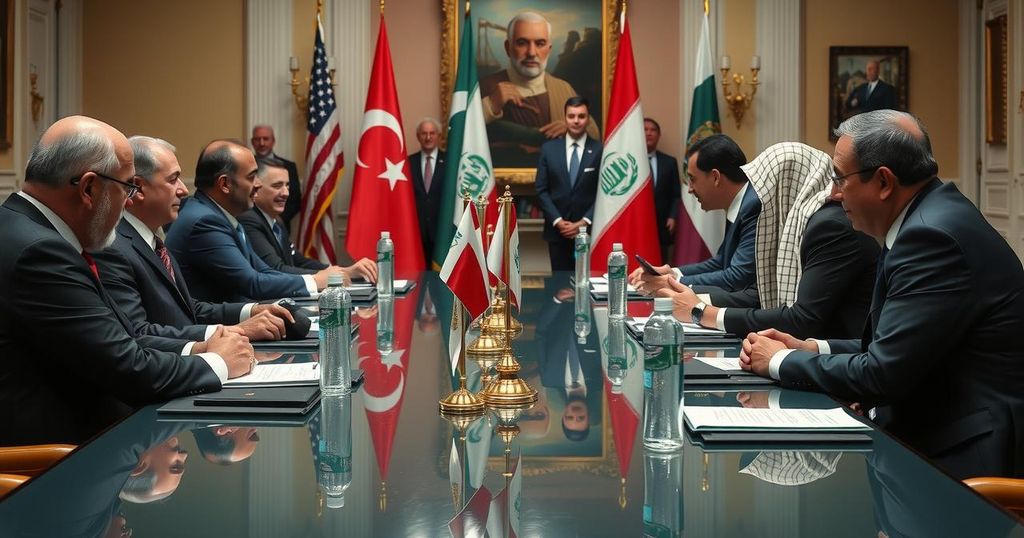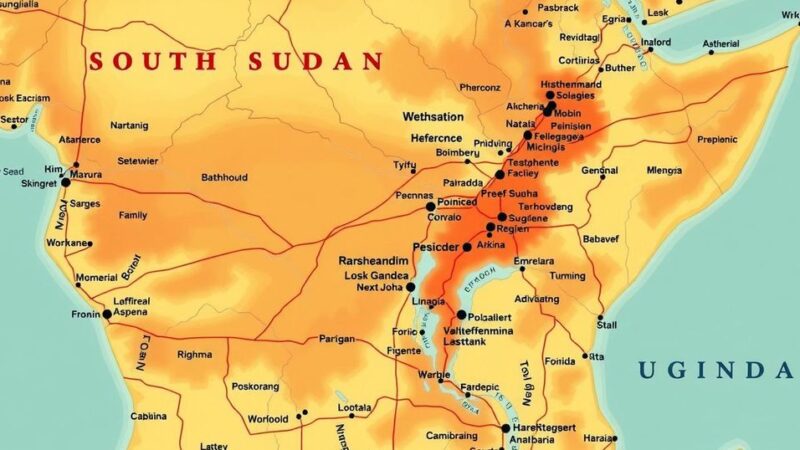Turkey, Russia, and Iran will meet this weekend in Qatar to discuss responses to the recent rebel advance in Syria, notably by Hayat Tahrir al-Sham (HTS), which has captured key cities like Aleppo. The talks are crucial as they aim to negotiate stability amid changing dynamics in the protracted conflict, with a focus on the importance of political solutions and managing the Kurdish issue in northeastern Syria. The outcomes could have significant implications for U.S. interests and the humanitarian situation in the region.
In light of a significant advance by rebel forces in Syria, Turkey, Russia, and Iran are set to engage in discussions during the Doha Forum in Qatar this weekend. The meeting aims to formulate a strategic response to the recent gains made by Hayat Tahrir al-Sham (HTS), which captured Aleppo and is advancing towards Hama and Homs. This gathering underscores the ongoing complexities of Syria’s long-standing civil conflict, drawing attention to the divergent positions held by the involved nations.
The Astana process initiated in 2017 by Turkey, Iran, and Russia was intended to facilitate diplomatic solutions to the protracted civil war. After achieving a ceasefire in 2020 that stabilized President Bashar al-Assad’s grip on power, the situation took a dramatic turn with HTS’s recent offensive. Russian President Vladimir Putin has emphasized the need to quell hostilities against Syria, while Turkish President Recep Tayyip Erdogan pressingly called for political engagement from the Assad regime.
The shifting dynamics in Syria have resulted in clashes between Turkish-supported factions and the U.S.-backed Syrian Democratic Forces (SDF), with increasing concerns regarding Kurdish independence and the presence of Islamic State (ISIS) resurgence in the chaos. Former U.S. officials express skepticism on whether the support from Russia and Iran for Assad will prove sufficient amid these developments.
Complications arise as Russia grapples with its military operations in Ukraine and Iran faces challenges from Israeli offensives against its regional proxies. Erdogan’s government, worried about the implications of a strengthened Kurdish presence along its border, seeks conditions to enable the return of approximately 3 million Syrian refugees presently in Turkey.
The United States continues to monitor the situation, reinforcing its commitment to counter ISIS and prevent the flow of refugees out of Syria. Acknowledging the delicate balance of regional and global interests in the conflict, experts advocate for a swift ceasefire to minimize human suffering and geopolitical instability.
The Syrian conflict, which has spanned over 13 years, has witnessed various power shifts and the involvement of multiple international players, resulting in a complex web of alliances and enmities. The Astana process, initiated by Russia, Iran, and Turkey, aimed to facilitate diplomatic discussions aimed at resolving the conflict by establishing ceasefires and political negotiations. The recent offensive by HTS, a significant Islamist group, has altered the military landscape in Syria significantly, challenging the previous control established by the Assad regime and raising new concerns about the influence of Kurdish forces supported by the United States in the region. Given the rival interests at stake, each nation involved pursues divergent objectives, impacting the potential for a unified approach to stabilize Syria.
The upcoming talks among Turkey, Russia, and Iran are critical as they confront the recent escalations in Syria’s conflict, particularly the advances made by HTS in key cities. The outcomes of these discussions could influence the geopolitical equilibrium in the region and the ongoing challenge posed by different factions battling for control. Moreover, various stakeholders, particularly the United States, remain vigilant regarding the complications surrounding ISIS resurgence and the humanitarian repercussions of the civil war, emphasizing the urgency for diplomatic solutions.
Original Source: www.voanews.com






